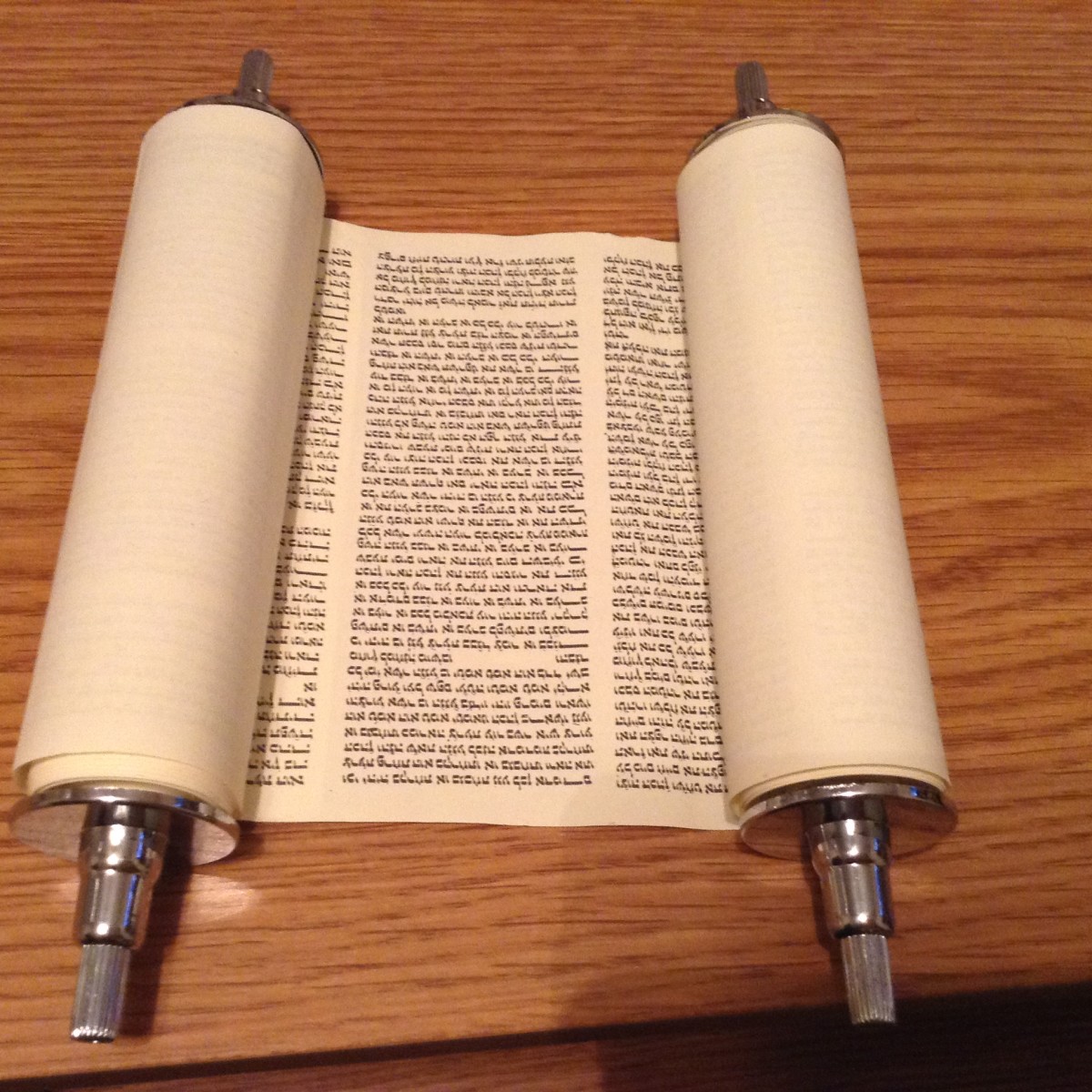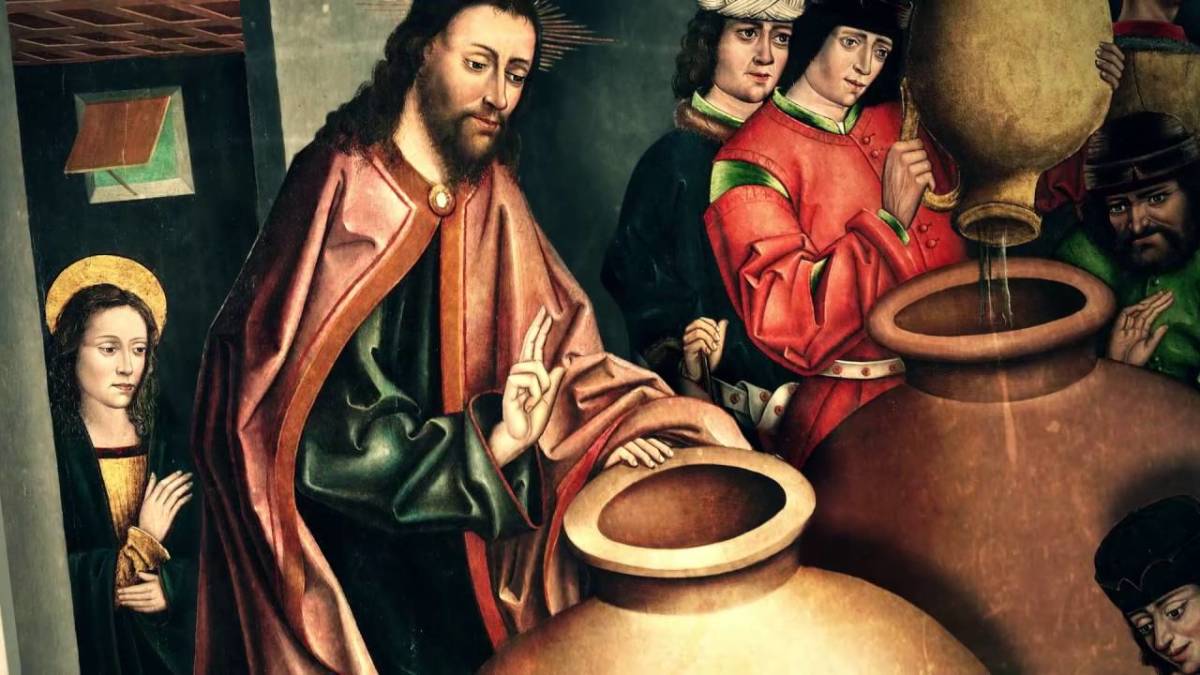The Suffering Servant Foretold
Nearly 2000 years ago an event happened that changed the world forever. The event caused the earth to quake, the rocks to split, the tombs to break open, and even the calendar was riven as time itself was divided. Civilizations would never be the same. People died over it, people killed for it, it has been the cause of war, and the cause of peace. No ordinary mortal could have such power over the entire Earth. Prophets have come and gone, religious people have spread the word of God, yet their influence could not compare to the transforming impact of One who came here long ago. He whose birth and death were foretold eons before.

For the life of the creature is in the blood, and I have given it to you to make atonement for yourselves on the altar; it is the blood that makes atonement for one’s life.
— Leviticus 17:11Isaiah Predicts the Messiah
Though He came humbly; accompanied by the cries of birth pangs, He went out with a bang—and the power to change death from life. His coming was no secret. For He was the long-awaited Messiah, presaged by the prophets and anticipated by an entire nation. The Book of Isaiah painted a vivid picture of the life and death of the Christ. Centuries before the birth of Jesus, Isaiah wrote as if he were seeing the birth and death firsthand. Throughout history people have been divided on why Christ came to Earth and died for us all, Isaiah answered that question. Jesus died for our sins.
“He was despised and rejected by men, a man of sorrows, and familiar with suffering. Like one from whom men hide their faces, he was despised, and we esteemed him not. Surely, he took up our infirmities and carried our sorrows, yet we considered him stricken by God, smitten by Him, and afflicted. But he was pierced for our transgressions, he was crushed for our iniquities; the punishment that brought us peace was upon him, and by his wounds we are healed. We all, like sheep, have gone astray, each of us has turned to his own way; and the Lord has laid on him the iniquity of it all. He was oppressed and afflicted, yet he did not open his mouth; he was led like a lamb to the slaughter, and as a sheep before the shearers is silent, so he did not open his mouth.” Isaiah 53:3-7
Later, Isaiah wrote:
“The Spirit of the Sovereign Lord is on me, because the Lord has anointed me to preach the good news to the poor. He has sent me to bind up the brokenhearted, to proclaim freedom for the captives and release from darkness for the prisoners, to proclaim the year of the Lord’s favor.” Isaiah 61:1,2
We see this fulfilled in the Book of Luke:
“Jesus returned to Galilee in the power of the Spirit, and news about Him spread throughout the whole countryside. He taught in their synagogues, and everyone praised Him. He went to Nazareth, where He had been brought up, and on the Sabbath day He went into the synagogue and, as was His custom, He stood up to read. The scroll of the prophet Isaiah was handed to Him. Unrolling it, He found the place where it is written: ‘The spirit of the Lord’ is on me, because He has anointed me to preach good news to the poor. He has sent me to proclaim freedom for the prisoners and recovery of sight to the blind, to release the oppressed, to proclaim the year of the Lord’s favor.’ Then He rolled up the scroll, gave it back to the attendant and sat down. The eyes of everyone in the synagogue were fastened on Him, and He began by saying to them, ‘Today this scripture has been fulfilled in your hearing.’” Luke 4:16-21
The Spirit of the Sovereign Lord is on me, because the Lord has anointed me to preach the good news to the poor. He has sent me to bind up the brokenhearted, to proclaim freedom for the captives and release from darkness for the prisoners, to proclaim the year of the Lord’s favor.”
— Isaiah 61:1,2Jesus Is The Son of God
There can be no ambiguity. Many Jews believe that Jesus was a wise teacher, Muslims believe He was a prophet. Jesus Himself claimed to be the Son of God. He did not hint at who He was, He told us plainly. In John 10:34-39 “Jesus answered them, ‘Is it not written in your Law, ‘I have said you are gods?’ If He called them ‘gods,’ to whom the word of God came—and the scripture cannot be broken—what about the one whom the Father set apart as His very own and sent into the world? Why then do you accuse me of blasphemy because I said, ‘I am God’s Son?’ Do not believe me unless I do what the Father does. But if I do it, even though you do not believe me believe the miracles, that you may know and understand that the Father is in me, and I in the Father.’”
Either Jesus was who He said He was, He was delusional, or He was a liar. Those are the only three options. Prophets speak for God, they don’t claim to be Him. Wise teachers don’t misrepresent themselves as the Son of God. Jesus said that He was God’s Son. We can either accept that He was who He claimed to be, or we can deny it.

Jesus said that He was God’s Son. We can either accept that He was who He claimed to be, or we can deny it.
The Book of Psalms and the Crucifixion
The Psalms also give us a glimpse into the suffering servant. David had written in the Book of Psalms, chapter 22:
"My God, my God, why have you forsaken me? Why are you so far from saving me, so far from the words of my groaning?" (psalm 22:1) (Matthew 27:46)
“They divide my garment among them and cast lots for my clothing.” (Psalm 22:18)
We see this fulfilled in the Book of John
"When the soldiers crucified Jesus, they took his clothes, dividing them into four shares, one for each of them, with the undergarment remaining. This garment was seamless, woven in one piece from top to bottom. 'Let’s not tear it,' they said to one another, 'Let’s decide by lot who will get it.' This happened that the scripture might be fulfilled which said, 'they divided my garments among them and cast lots for my clothing.'” John 19:23-24
David was a king, not a prophet. His life was not an easy one; he was often on the run from his predecessor Saul, from his own rebellious and murderous son, and if that weren’t enough, from foreign armies. The Book of Psalms is David’s (along with a few other authors) book of poetry. We see his joy, his faith, or his grief displayed openly. Psalm 22 begins with despair but ends with elation. From verse 22 onward, the chapter takes a dramatic turn and starts to praise God for His goodness. David knew that suffering is only for a moment, and in the end, God will always prevail.
What better description for the life and death of Jesus? Jesus lived a humble life and suffered humiliation, loneliness, and excruciating pain, only to ultimately triumph over death when He rose from the grave. Jesus Himself drew the parallel between this psalm and His own life as He hung from the cross and quoted this verse. David saw that there was a plan behind his own suffering, we can now see that there was a far greater plan in the suffering of Jesus.

Why Jesus Came
Mankind was dead from the beginning. Stained black from sin, all our thoughts were on evil all the time. We were a wicked species; bringing about death, destruction, violence, and falsehood in our wake. We were so violent, so profane and detestable, that there were times God regretted ever creating us. Yet God still loved us. We bowed down to foreign idols, cheated the needy, practiced sex with temple prostitutes, and we committed murder and genocide. Yet God still loved us. We sacrificed our children on altars to foreign gods, we raped women and immigrant men. We failed to love God and we've withheld love from our neighbors. Yet God still loved us. We invented torture and new ways to murder. We despised justice and scorned mercy. We robbed the poor, the aliens, the widows, and the orphans. Yet God still loved us.
Though we are as black as sin, and unworthy of salvation, God still loves us anyway. Our sins deserve punishment, but God loves us. Because He loved us, He took all the sins we’ve ever committed, and He hung them on a cross to die. God took our punishment upon Himself, in His death was our victory. And by His wounds we are healed, praise be to God!
© 2018 Anna Watson








